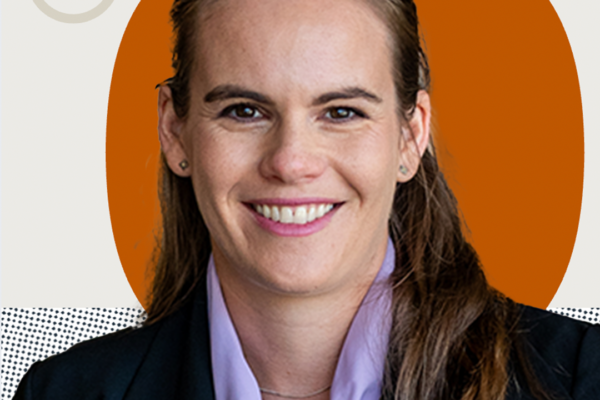2017 Best & Brightest Business Students
Each year Poets & Quants dubs a select few as the “Best and Brightest” business students. This year, two undergraduate and two MBA students from the McCombs School adorn the list.

In a Q&A with the students, they each divulge their favorite courses, professors, and tips for future students hoping to study business.
Undergraduate Students
HUMZA TARIQ
Major: Business Honors, Finance
After Graduation: Tariq will be joining Goldman, Sachs & Co. in the Investment Banking Division in New York City.

Favorite Business Courses:
- Valuation (Dr. Warren J. Hahn) — Dr. Hahn has an uncanny ability to break down complex concepts into very easy-to-understand terms.
- Operations Management (Dr. Rayan Bagchi) — This course does an excellent job of sharpening students’ quantitative skillsets and illustrates the far-reaching effects that operations can have on businesses, especially from a financial perspective.
- Business Law & Ethics (Dr. Robert Prentice) — The Supreme Court assignment in this class is one of the most thought-provoking projects I’ve ever been tasked with in college; I sincerely enjoyed every minute of it.
Who is your favorite professor?
Dr. Riekenberg taught me business communications, but she also taught me that our professors are wonderful people who are always willing to offer guidance and advice to their students. Her wise words on humility, motivation, and honesty were very important for me to hear at the beginning of my college career, and I still make an effort to visit with her every semester.
What is the biggest lesson you gained from studying business?
It’s important to question conventional wisdom. An application-based curriculum which analyzes cases allows students to understand that simply following intuition may or may not be the best route to take. Business classes teach students to think outside of the box and consider solutions which may go against the grain or popular opinion. Strategy is truly an area of great complexity, and a pedagogical approach which emphasizes historical analysis without falling victim to hindsight bias can really change the way that students tackle problems moving forward.
Learning from successful (and sometimes unsuccessful) executives and entrepreneurs is a great way to equip students with an analytical mindset that seeks to challenge prevailing beliefs in an organization.
What advice would you give to a student looking to major in a business-related field?
Thinking long-term is great, and it’s always nice to have goals that you aspire to. That being said, however, don’t be afraid to pivot and change your goals, major, or extracurricular involvements as you see fit.
Keep an open mind and really take some time to explore all of the academic areas in the business school; doing so might lead you to something that you really find interesting and would not have necessarily considered before.
KATHERINE MAGEE
Major: Business Honors, Plan II Honors (an interdisciplinary liberal arts major)
After Graduation: Returning to work for Bain & Company in Dallas as an Associate Consultant.

Favorite Business Courses:
1. International Trade (Professor Linda Gerber) — This course allowed me to combine my interest in business with my love of global affairs.
2. Law, Ethics, and Business (Professor Robert Prentice) — because it truly challenged me to think critically about ambiguous legal cases. The class instilled in me the believe that corporate social responsibility isn’t just an opportunity for good publicity, but a necessity in today’s world that also that has the power to deliver significant business benefits.
3. Business Honors Program capstone in Management focuses on business strategy, and is really challenging me to grasp what truly constitutes success for a business.
What did you enjoy most about majoring in a business-related field?
I enjoyed that my business studies enables me to develop both hard skills and soft skills. So often, people emphasize the hard analytical or technical skills required in today’s business world. But there is also great value to softer skills like teamwork, leadership, creativity, and emotional intelligence. I firmly believe that both categories of skills are necessary to be successful. I am grateful for the fact that the breadth of my business classes has taught me skills in both areas.
What is the biggest lesson you gained from studying business?
The biggest lesson I learned from studying business is the importance of teamwork. Through teamwork on difficult problems, we developed better solutions to group projects than I could have thought of individually.
Each person brings their own knowledge, experience and ideas to the table. By combining the insights of each team member, we always reached a better solution than any one of us could have alone.
What advice would you give to a student looking to major in a business-related field?
I would tell them that regardless of what business-related field they study, they should always remember to think of people.
Businesses aren’t simply made of assets; businesses are run by people and businesses serve people. You must think of people first.
MBA Students
TIMOTHY CARREON
Undergraduate School and Degree: University of Southern California, B.S. Business Administration
After Graduation: Carreon will be joining Amazon, Inc. in the finance leadership development program.

What was your favorite MBA Course and what was the biggest insight you gained about business from it?
My favorite MBA course has been “Strategies for a Networked Economy,” taught by Professor Prabhudev Konana. The class has helped me to think critically about the exponential increase in the interconnectedness of our world. Companies, customers, suppliers, and partners are evolving through information technology and platform-mediated networks, and it’s our job as future managers to extract the most value out of this complex network.
Why did you choose this business school?
I chose McCombs because the students with whom I had interacted were so open, authentic, friendly, and helpful. When I visited Austin for my admissions interview, I was blown away by the vibe of the city, the hospitality of the people, and the ambitions of the students.
What did you enjoy most about business school in general?
The relationships that I have made, both professionally and personally, while at McCombs are invaluable to me. Many people will refer to this collection of relationships from business school as a network — I call it a second family. I would not have achieved the same level of success without my classmates, my mentors in the McCombs program office, and my amazing professors.
What was the most surprising thing about business school for you?
I was most surprised at how the city of Austin is such a valuable asset that contributes to the camaraderie of the McCombs Full-time MBA program. I tell prospective students that it’s a “big little city” — you can hike the Texas hill country, have some of the country’s best BBQ, watch the most valuable college football team in America, and catch a live band all in the same day, and within a 10-mile radius. Yet, because Austin is still small enough, all of my classmates live close to each other, so there isn’t a day that goes by where I don’t grab a drink or a bite to eat with a friend.
What is your best advice to an applicant hoping to get into your school’s MBA program?
McCombs is all about its “famously friendly” culture. Applicants should show that they have culture fit by demonstrating how they care for the community, how they have helped their peers to succeed, and how much they value personal and professional relationships.
What was your biggest regret in business school?
My biggest regret was not taking more advantage of the entrepreneurial programs at McCombs. The school’s unique placement in context of the Austin start-up scene provides unique opportunities for students with entrepreneurial ambitions. I’ve only started to explore Austin’s and McCombs’ start-up environment and wish I started sooner!
CAITLIN GOODRICH
Undergraduate School and Degree: Rice University, B.S. Astrophysics. Currently earning a dual MBA from McCombs and Masters in Public Affairs from the LBJ School at UT Austin.
After Graduation: Goodrich will be returning to Deloitte Consulting as a Manager in the Human Capital practice.

What was your favorite MBA Course and what was the biggest insight you gained about business from it?
My favorite MBA course is Environmental, Social and Governance Investing because it helped me understand how non-market strategies can work, even in our current system. My biggest takeaway was that being good for society is a business strategy the market validates in certain contexts.
Why did you choose this business school?
It’s a cliché at this point, but I chose McCombs for the people. We work hard, support each other and have fun together.
McCombs people are competitive, but with themselves — not each other — and it’s this combination of internal drive and supportive environment that is just magic.
What did you enjoy most about business school in general?
I’ve always been a huge nerd and luckily, that gets more and more acceptable the older you get. I love learning — the chance to spend three years learning about business and public policy is a huge luxury that I’m so grateful for. I’m a better critical thinker, a better leader and manager and a better civic participant as a result of reading and then talking about stuff that matters with smart people who care.
What was the most surprising thing about business school for you?
After a year in public policy school, I was nervous about entering an environment that was interested in such different problems and often prioritizes such different issues. Even though the transition was challenging, I vowed to practice speaking my mind even when I felt my views might be unpopular. This was great practice for me and helped me find the many, many people who were concerned about the same issues I was. In short, I’m surprised by both how much I’ve grown and how easy it was to find a community.
What is your best piece advice to an applicant hoping to get into your school’s MBA program?
Understand why Texas is the best program for you and tell that story in a compelling way through your application. In interviews, it’s easy to tell who can picture Texas as part of their future and who is interviewing because it makes sense for their application strategy. The former group is much more engaging.
DON’T MISS: THE FULL HONOR ROLL: THE BEST & BRIGHTEST UNDERGRADUATE BUSINESS MAJORS OF 2017
Originally published at poetsandquantsforundergrads.com on April 9, 2017 and reprinted here with permission.
About this Post
Share:


